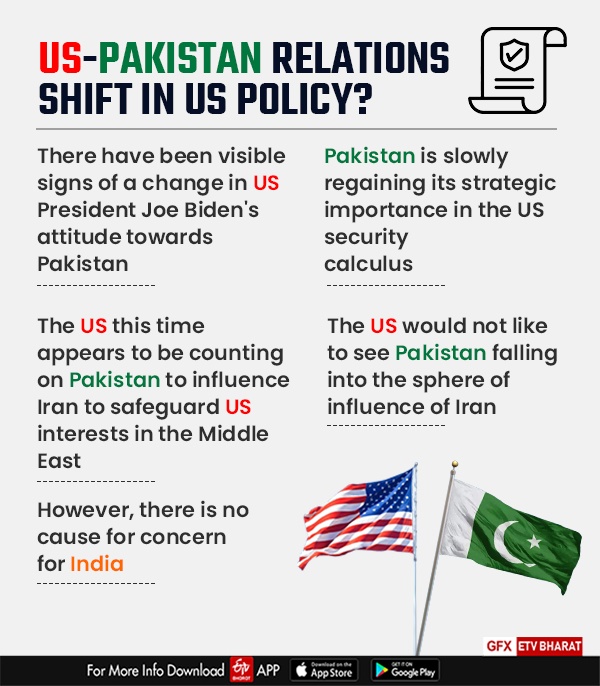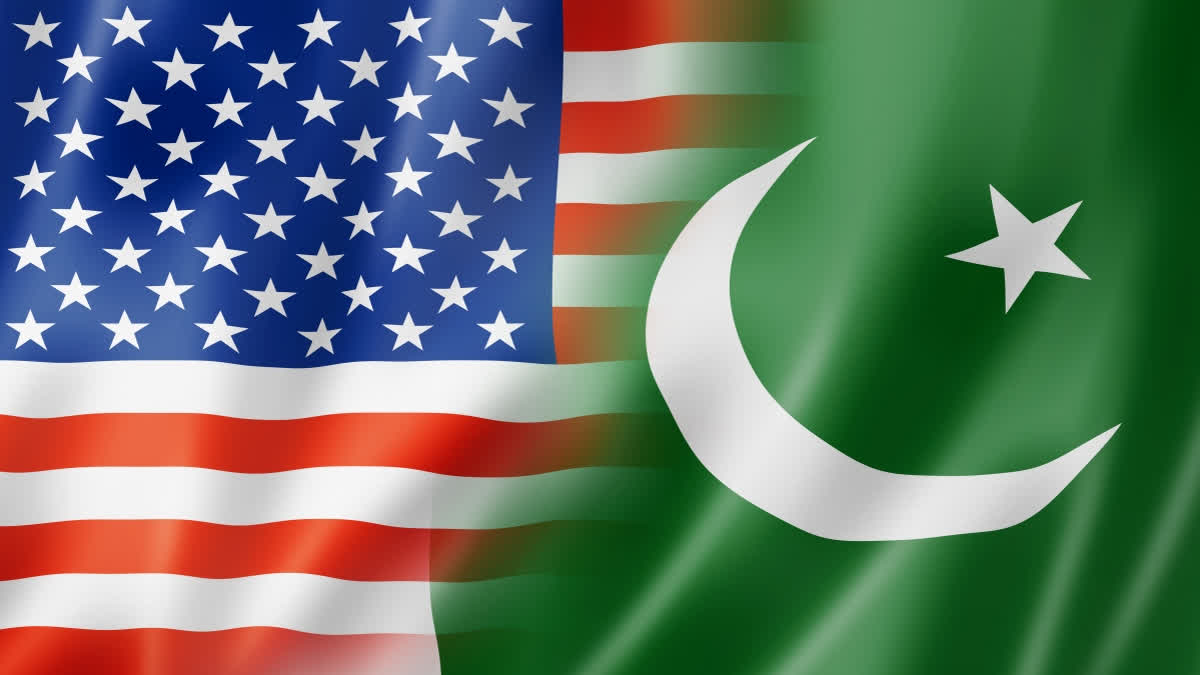In recent weeks there were visible signs of a change in US President Joe Biden's attitude towards Pakistan, prompting a thought as to whether there was an intention on the part of the US to reset its relations with Pakistan in areas of security and beyond security. These signals came soon after the Parliamentary elections in Pakistan and the formation of a coalition government in March 2024 with Pakistan Muslim League (NS) leader Shahbaz Sharif as Prime Minister.
In order to understand the importance of these indicators, it may be recalled that for decades Pakistan had occupied an important position in the US security metrics, particularly in the context of US/NATO interests in Afghanistan. The situation changed with the unceremonious and hasty withdrawal of the USA from Afghanistan and the return of the Taliban to power on 15th August 2021.

The humiliating withdrawal from Afghanistan caused a dent on the popularity of Joe Biden (who had taken over as US President a few months ago in January 2021), even though the decision of the NATO withdrawal was taken during his predecessor Donald Trump's tenure. From here onwards, President Biden developed cold feet towards Pakistani leadership; this was reflected most notably in the absence of Biden's communication with the then PMs Imran Khan or Shahbaz Sharif.
Biden did not respond to Imran Khan's desire for a geo-economics reset in Pakistan’s relations with the USA. In October 2022, Biden, in an off-the-cuff remark, described Pakistan as 'one of the most dangerous nations' and questioned its nuclear safety protocols.
Meanwhile, tensions were growing between Pakistan and the Taliban over borders /Durand line, alleged patronage of anti-Pakistan terror organisation TTP by Afghanistan Taliban and the repatriation of Afghan refugees; this in turn meant that Pakistan's capacity to influence the Taliban at the behest of the USA or otherwise diminished.
It can be safely presumed that after the Afghanistan debacle in 2021, Pakistan lost its strategic importance in the region from the US perspective. To be correct, it must also be mentioned that as part of the US dual-track policy, while Biden cold-shouldered Pakistani leadership, the US State Department continued to engage Pakistan to keep the doors open for the future.
The first significant departure in Biden's attitude was seen when he wrote a personal letter to newly elected Prime Minister Nawaz Sharif within weeks of the latter's swearing-in ceremony as PM in early March'24. The emphasis once again was on security. Biden said, "The enduring partnership between our nations remains critical to ensuring the security of our people — and people around the world — and the United States will continue to stand with Pakistan to tackle the most pressing global and regional challenges of our time." References were also made to health security, education for all, environment etc.
Biden's gesture to Pakistan leadership comes towards the end of his four-year term in 2024. Some observers would therefore like it to be brushed aside as a politically motivated move to address domestic constituencies. However, it is important to note that the letter came in the backdrop of the Israel-Hamas conflict and deteriorating relations between Iran and Israel threatening a possible outbreak of larger conflict in the Middle East.
In the US perception, Pakistan may be useful in the context, particularly of Pakistan’s growing proximity with Iran. Interestingly, the Iranian President's visit to Pakistan (22-24, April 2024) came up soon after Iran's direct attack on Israel; this was also the first visit of a Head of State to Pakistan after the February 2024 Parliamentary elections. The two sides inter-alia discussed the completion of the Iran-Pakistan gas pipeline to address Pakistan's energy needs; the energy factor alone is important enough for Pakistan to engage Iran.
In short, one can safely surmise that Pakistan is slowly regaining its strategic importance in the US security calculus, and the US this time appears to be counting on Pakistan to influence Iran to safeguard US interests in the Middle East. At the same time, the US would not like to see Pakistan falling into the sphere of influence of Iran - a staunch adversary of Israel and also the USA.
A note may also be taken of the US Assistant Secretary of State’s visit to Islamabad early in April 2024 soon after the Iranian President's visit to Pakistan during which several issues other than security were also reportedly discussed. It remains to be seen how far the US will go in strengthening renewed strategic alliances and/or cooperation in non-traditional areas with Pakistan.
A pertinent question arises: is there any cause of concern for India? Perhaps none. First and foremost, India's comprehensive global strategic partnership with the USA developed despite the strong US alliance with Pakistan. Moreover, most of the influential global players hyphenating their relations with India and Pakistan. Equally important is the fact that the canvass of India-US relations is too wide to be affected by any rapprochement between the US and Pakistan unless it infringes upon India's national interests.



